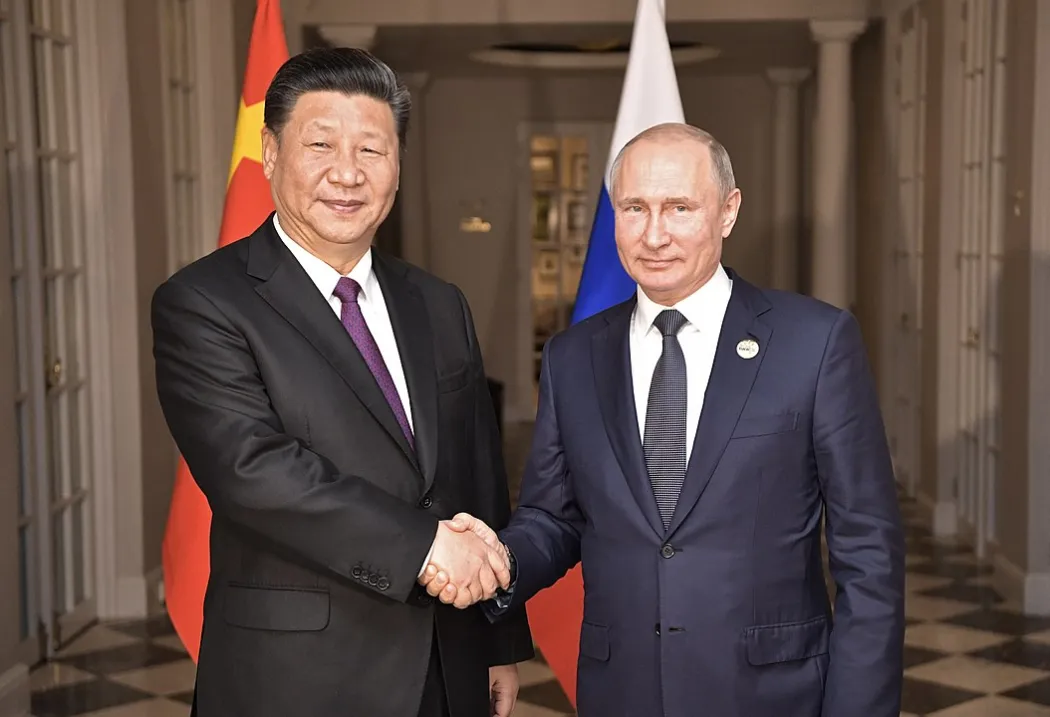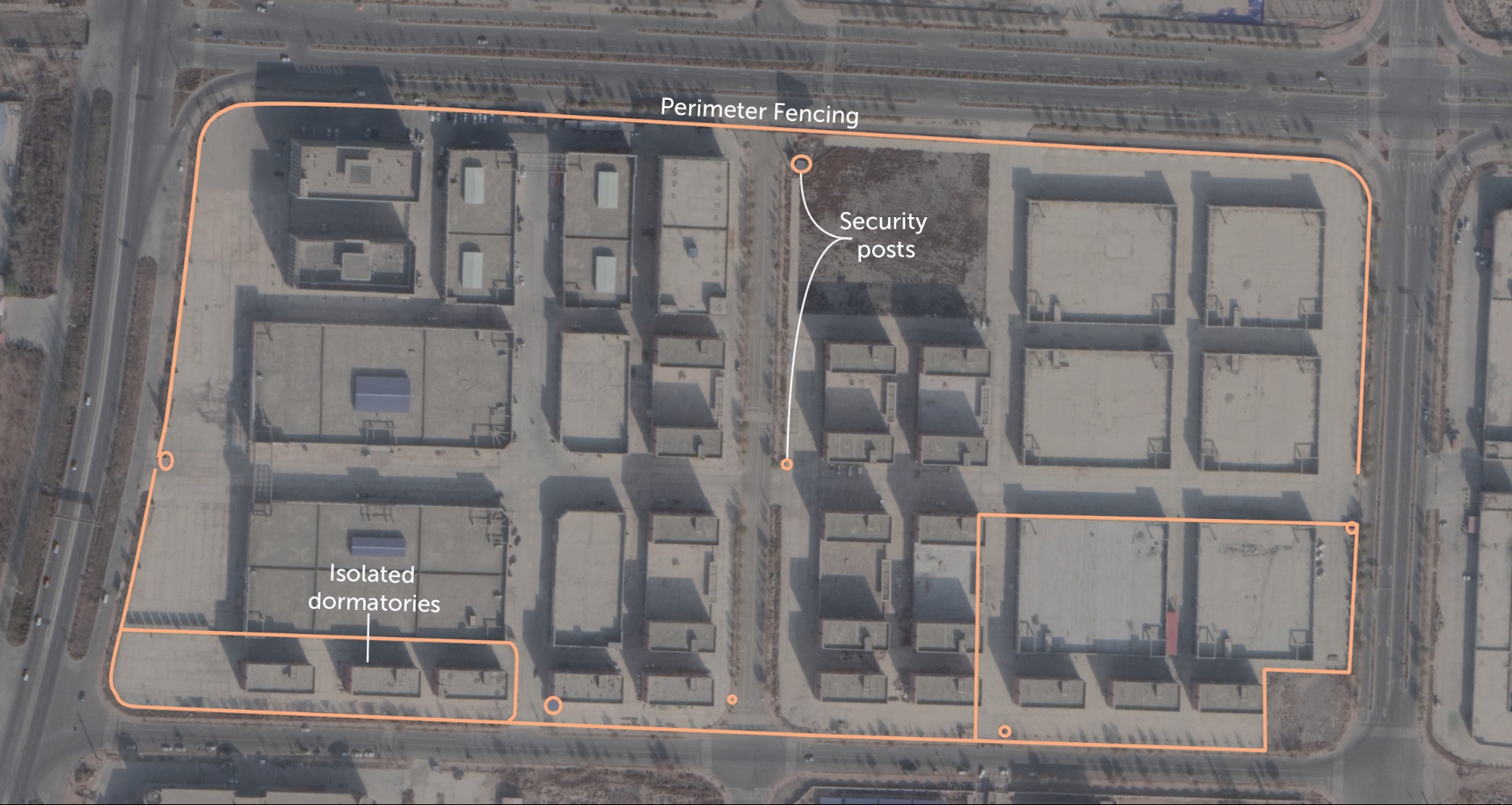China’s rise over the last several decades, characterised by its expanding economic and military power, has been miraculous. But there is a paradox associated with that rise: as its power has increased, trust in China has declined.
The war in Ukraine helps to explain this paradox. Less than two months before Russia’s invasion, Chinese President Xi Jinping told Ukraine President Volodymyr Zelensky that he attached “high importance to developing the Chinese-Ukrainian strategic partnership.” But only weeks later, Xi and his Russian counterpart, Vladimir Putin, declared that their countries’ budding alliance had “no limits.”

At that very moment, Russian military forces were massing along Ukraine’s border. Not long thereafter, they crossed it. Putin would have logically interpreted “no limits” to mean no opposition to his oft-declared designs on Ukraine, and thus a green light to invade.
There is debate regarding the extent to which Xi and other Chinese officials had advance knowledge of the invasion. If they did, that makes them complicit in aggressive war and ongoing Russian war crimes in Ukraine. It would also mean that claims of ignorance by Chinese officials are not to be trusted.
And if they didn’t have knowledge of the invasion, the Russians didn’t trust them enough to give forewarning. Either way, there’s distrust of China.
The high importance that Xi supposedly attached to a strategic partnership with Ukraine could be interpreted in different ways. But surely Zelensky could have justifiably assumed that Xi would exclude a no-limits alliance with Ukraine’s obvious enemy, which at the time was occupying much of the country’s east and south.

In the run-up to his invasion, Putin pronounced that Ukraine had no right to exist as a sovereign state. Contrast this with China’s declarations over many decades extolling the inviolability of national sovereignty. Only days before the invasion, Chinese Foreign Minister Wang Yi declared that “all countries’ sovereignty, independence and territorial integrity should be respected and safeguarded,” and “Ukraine is no exception to the principle.”
Yet China still refuses to condemn Russia’s brutal violation of that very same principle, and indeed actively opposes doing so. Its judge on the International Court of Justice joined the Russian judge to cast the only votes against a ruling demanding that Russia halt its invasion.
China may exacerbate its complicity in the war by deciding to give economic and financial support to Russia, and by preparing to assist it in circumventing Western economic sanctions designed to restore the territorial integrity that Yi rightly defended.
According to reports, Russia has requested that China provide it with weapons to bolster the assault on Ukraine. It is unclear whether China will fulfil that request. Chinese writing on bomb fragments in destroyed Ukrainian hospitals and schools – favourite targets of the Russians – would not be good for China’s reputation.
But if Beijing does fulfil Russia’s request, even partially, as some reports suggest it’s willing to do, its actions will send a powerful message not just to Ukraine but to all countries: China’s pledges of partnership are unreliable, and they might even be precursors to disaster facilitated by China.
It is understandable if there is scepticism regarding what Chinese officials say about the Ukraine war. On one hand, they have suggested that China could help to negotiate an end to the fighting, but on the other their propaganda machine is echoing Russia’s falsehoods about the war and Putin’s justifications for it.
For example, China has promoted outlandish claims by Russia that Ukraine is developing biological and chemical weapons with Western support. For Russia, such claims may be a matter of trying to justify its own intention to use those sorts of weapons in Ukraine. After all, Putin’s Russia has used chemical weapons at home in Chechnya and at minimum aided their use abroad in Syria. By reiterating his propaganda, China may be giving Putin another green light, this time to use chemical weapons to exacerbate the suffering of Ukrainians.
There is further evidence online of whose side China is on in the Ukraine war. Attempts by Chinese citizens to use social media to condemn the Russian invasion have been blocked in China, while those cheering it have been allowed to proliferate. This is more evidence that China’s “partnership” with Ukraine differs radically from what Ukrainians, and almost anyone else, could have reasonably expected.
Indeed, China’s behaviour toward suffering Ukraine is nothing like a strategic partnership; it’s a partnership of death and destruction. Henceforth, Ukraine has every reason to assume that any promises of friendship and “partnership” from China are schemes that can be reversed by Beijing at the drop of a hat. That isn’t partnership; it’s deception. Other countries will take notice.

In addition to reneging on its promises to Ukraine, China has also revealed that its frequent protests against American violations of other countries’ sovereignty are untrustworthy hypocrisies. Can any country trust Beijing’s word on “sovereignty, independence and territorial integrity” ever again? It’s a matter of words versus deeds; when China’s words say the opposite of its deeds, it is only China’s fault if its words are not trusted.
It is self-evident that Ukraine has reason to doubt the high importance that China places in truly developing a strategic partnership. Might Russia be having its doubts, too?
After more than three weeks of war, limits to China’s promise of a no-limits alliance with Russia are apparent. Surely Putin was hoping that it would involve more support than some abstentions on United Nations votes to condemn his invasion.
China still won’t call the invasion an invasion. It’s hard to trust someone who won’t call a spade a spade.
Chinese officials may hope that their tacit support for Russia will be rewarded with Putin’s support for a Chinese invasion of Taiwan – assuming the Ukraine war doesn’t result in Putin’s self-destruction. In the meantime, China may see the Ukraine war as an opportunity to extract benefits from Russia. It will certainly demand bargain prices for Russian commodity exports, including heavy discounts on oil and natural gas. In China’s lexicon, no limits does not include paying retail prices.
If China does not fulfil Russia’s request for military and financial assistance, their alliance will be something short of no limits. In that case, neither Russia nor Ukraine will have been treated as strategic partners; both will feel betrayed by China’s promises.
If by developing a strategic partnership with another country China means doing nothing when that same country is attacked militarily, and even aiding the invader, what are other countries to expect from promises of partnerships with China, strategic or otherwise? Asking the question is especially apt because China’s deception of Ukraine is by no means exceptional; it is part of a pattern of China saying one thing and doing another, and often doing the opposite of what it says it will do.
The more China rises, the more this holds true, possibly because Chinese officials believe that a newly powerful China can get away with routine deception.
One of the most egregious examples of this pattern was Beijing’s unilateral abrogation of the 1984 Sino-British Joint Declaration on Hong Kong, a formal international treaty registered with the United Nations. In the Joint Declaration, China promised that it would allow Hong Kong 50 years of economic, legal, social and political autonomy. However, after only 20 years of partial autonomy, China declared that the Joint Declaration was “a historical document [that] no longer has any practical significance, and it is not at all binding.”
This abrogation has no basis in international law. China has since violated the Joint Declaration in several ways, to the exasperation of the United Kingdom and other countries, not to mention the majority of people in Hong Kong.

National governments often come to regret signing international treaties. If withdrawal or renegotiation are not options, the normal response is to look for loopholes and new interpretations, to at least give the appearance of keeping their word – of following the agreed law – while doing otherwise.
In unlawfully dispensing with the Joint Declaration, China didn’t even attempt that pretence. Surely this makes other countries wonder whether international law is any obstacle to China disregarding its promises.
Trust in China is also increasingly hard to come by in matters of trade and development. It has faced frequent accusations of violating its obligations under the World Trade Organisation. Western corporate executives have long complained that promises made by, and agreements signed with, their Chinese counterparts are often violated. China’s much-vaunted Belt and Road Initiative is replete with examples of bold promises from the Chinese side to bring development and jobs, only for it to bring debt and environmental destruction.
Examples of China’s words not being taken seriously are legion, ranging from China showing great affront to accusations that it practices hostage diplomacy to its earnest attempts to explain away routine violations of international human rights agreements of which it is a party, even ardently proclaiming that “genocide” in Xinjiang is merely “vocational education.”

China’s attempts to deflect blame for inadvertently unleashing the Covid-19 coronavirus on the world by suggesting that it came from a biological lab at an American military base – eerily similar to Beijing’s more recent mimicking of Russian accusations with respect to the Ukraine war – were met with universal scepticism, at least outside China.
And does anyone seriously trust economic statistics issued by Beijing? Maybe those statistics are valid much of the time. This is precisely the problem that China has created for itself: by fibbing so frequently, suspicion abounds even if it tells the truth.
Nation-states have two ways of dealing with one another. One way is based on trust, whereby a country’s word is about as good as gold. The other way is characterised by scepticism and even cynicism, whereby a country’s word is good for little and only its actions can be trusted.
The Ukraine war highlights the absurdities and lies of Moscow. It also reveals that Beijing’s word may be little better. This is hardly conducive to the influence that should accompany China’s unquestioned economic and military rise.
When China reneges on its promises, it’s not just trust in China that suffers. So, too, do people. For example, when it reneged on its promises under the World Trade Organisation, millions of Americans lost their jobs. When it reneged on the Sino-British Joint Declaration, millions of people in Hong Kong lost rights that they took for granted. When it reneged on its promises to uphold human rights, countless people were abused. Since it reneged on its promise to partner with Ukraine, and instead coddled that country’s oppressor, millions of people have suffered and many thousands have died.
Words matter. If Beijing’s words don’t matter as much as Chinese officials want them to – if China is no longer trusted – they have only themselves to blame. By repeatedly saying one thing and doing another, China makes getting its way in international affairs more difficult than it needs to be. Hubris makes for hard work.
Support HKFP | Policies & Ethics | Error/typo? | Contact Us | Newsletter | Transparency & Annual Report | Apps
| HKFP is an impartial platform & does not necessarily share the views of opinion writers or advertisers. HKFP presents a diversity of views & regularly invites figures across the political spectrum to write for us. Press freedom is guaranteed under the Basic Law, security law, Bill of Rights and Chinese constitution. Opinion pieces aim to point out errors or defects in the government, law or policies, or aim to suggest ideas or alterations via legal means without an intention of hatred, discontent or hostility against the authorities or other communities. |
Help safeguard press freedom & keep HKFP free for all readers by supporting our team

More HKFP OPINION:
HKFP has an impartial stance, transparent funding, and balanced coverage guided by an Ethics Code and Corrections Policy.
Support press freedom & help us surpass 1,000 monthly Patrons: 100% independent, governed by an ethics code & not-for-profit.










